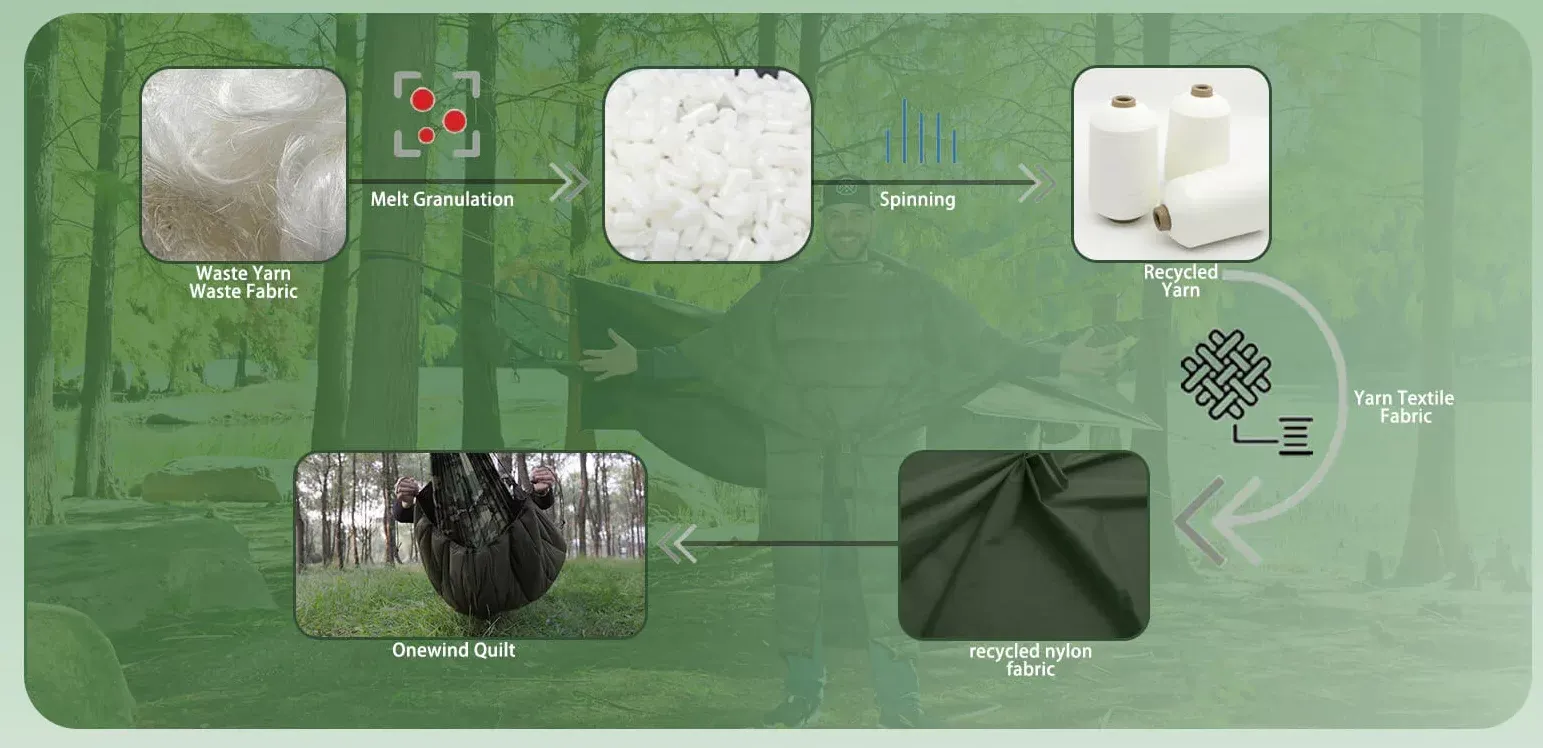Recycled Nylon: A Sustainable Solution for the Future
Nov 19, 2024
In contrast, virgin nylon originates from petroleum, a non-renewable fossil fuel. Petroleum not only fuels the production of nylon but is also the backbone of countless plastic products used globally. This dependency on finite resources makes the case for recycled alternatives even stronger. The journey of recycled nylon begins with the collection of waste nylon materials. These are broken down into their base chemical components through a process known as depolymerization. This step ensures that the resulting components are of high purity and can be reprocessed into new nylon material.
Once depolymerized, these components are recombined to form nylon sheets. The next steps mirror those of virgin nylon production: the sheets are heated and passed through a spinneret to produce fibers. These fibers are then woven into fabrics or molded into other forms for diverse applications.
By giving discarded materials a second life, recycled nylon not only reduces waste but also diminishes the demand for petroleum-based virgin nylon.
 Recycled nylon has become synonymous with sustainable fashion. As consumers increasingly seek environmentally friendly options, brands are adopting recycled materials to align with these values. The use of recycled nylon contributes to a circular economy, minimizing the textile industry's ecological footprint and encouraging responsible consumption.
Despite its origin in waste, recycled nylon is in no way inferior to virgin nylon. It retains the same properties that make virgin nylon popular: strength, durability, and versatility. Whether for outdoor gear, activewear, or casual clothing, recycled nylon proves to be a reliable and adaptable material.
The production of recycled nylon is inherently more eco-friendly than that of virgin nylon. By repurposing existing materials, the process uses significantly less water and energy while generating fewer greenhouse gas emissions. Additionally, it mitigates the environmental hazards associated with waste disposal, particularly for materials like fishing nets that often end up polluting oceans.
Recycled nylon is making waves across various industries. Its applications include:
Recycled nylon has become synonymous with sustainable fashion. As consumers increasingly seek environmentally friendly options, brands are adopting recycled materials to align with these values. The use of recycled nylon contributes to a circular economy, minimizing the textile industry's ecological footprint and encouraging responsible consumption.
Despite its origin in waste, recycled nylon is in no way inferior to virgin nylon. It retains the same properties that make virgin nylon popular: strength, durability, and versatility. Whether for outdoor gear, activewear, or casual clothing, recycled nylon proves to be a reliable and adaptable material.
The production of recycled nylon is inherently more eco-friendly than that of virgin nylon. By repurposing existing materials, the process uses significantly less water and energy while generating fewer greenhouse gas emissions. Additionally, it mitigates the environmental hazards associated with waste disposal, particularly for materials like fishing nets that often end up polluting oceans.
Recycled nylon is making waves across various industries. Its applications include:
Moreover, recycled nylon addresses the growing concern of ocean pollution. Ghost fishing nets, abandoned or lost in the ocean, pose a severe threat to marine ecosystems. Programs that collect these nets for recycling not only reduce waste but also protect marine life.
The recycling process can be more expensive than producing virgin nylon, particularly due to the technical requirements of depolymerization and purification.
The supply of waste materials suitable for recycling is limited and relies heavily on efficient collection and sorting systems.
Many consumers remain unaware of the benefits of recycled materials, underscoring the need for education and advocacy.
Addressing these challenges requires collaboration across industries, governments, and consumers to create supportive policies, invest in technology, and promote sustainable choices.
Governments and organizations can further accelerate this transition by implementing policies that incentivize the use of recycled materials and penalize wasteful practices. Consumer awareness campaigns can also drive demand for products made from recycled nylon, encouraging brands to prioritize sustainability.
With its high quality, versatility, and eco-friendly production, recycled nylon is not just an alternative to virgin nylon—it is a step toward a more sustainable and responsible future. As industries, governments, and individuals embrace this innovation, recycled nylon has the potential to reshape how we interact with materials and the environment.
Next: Open-Width Single Jersey Circular Knitting Machine: Enhancing Fabric Production
Previous: Types of Knit Fabrics from Circular Knitting Machines
We have been committed to manufacturing all types of circular knitting machines with great quality and reasonable price for a long time. Our professional team is highly specialized and problem-solving oriented. We put the most effort into meeting your knitting demands, achieving a win-win situation.